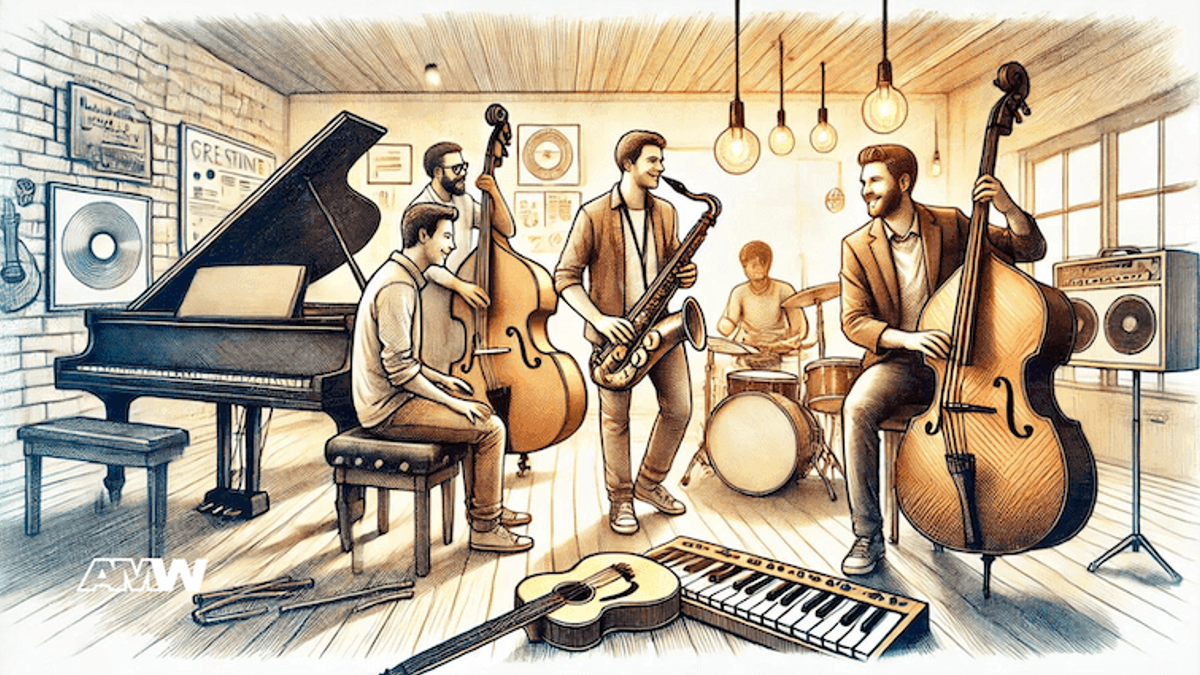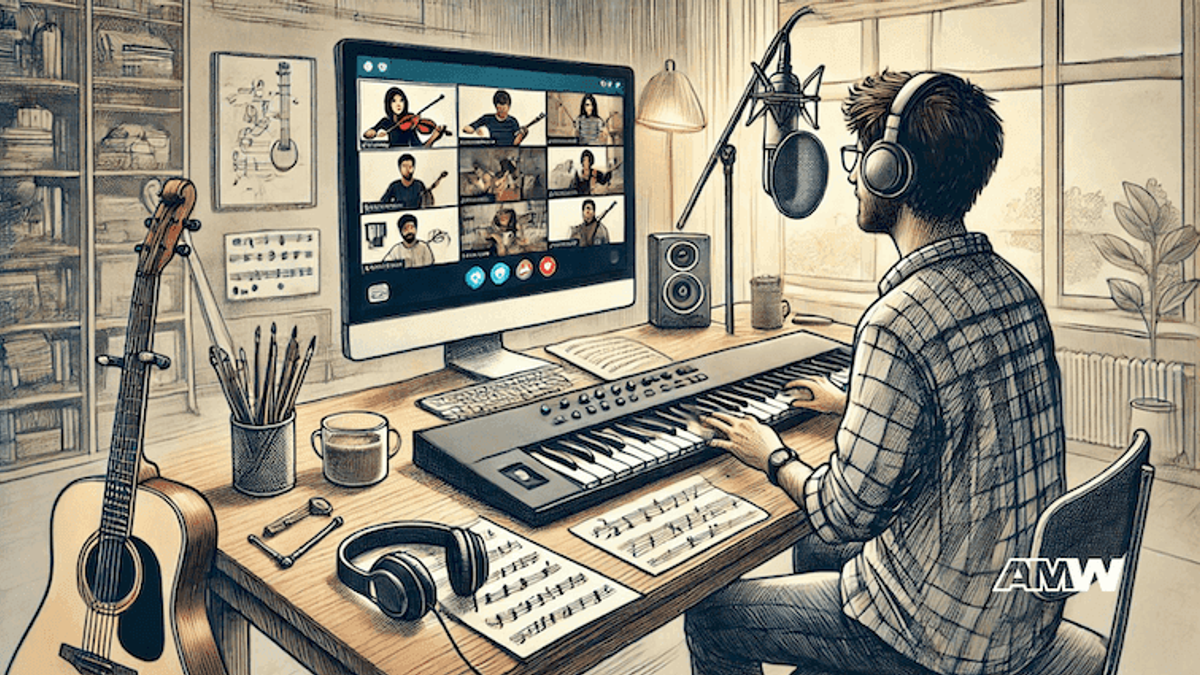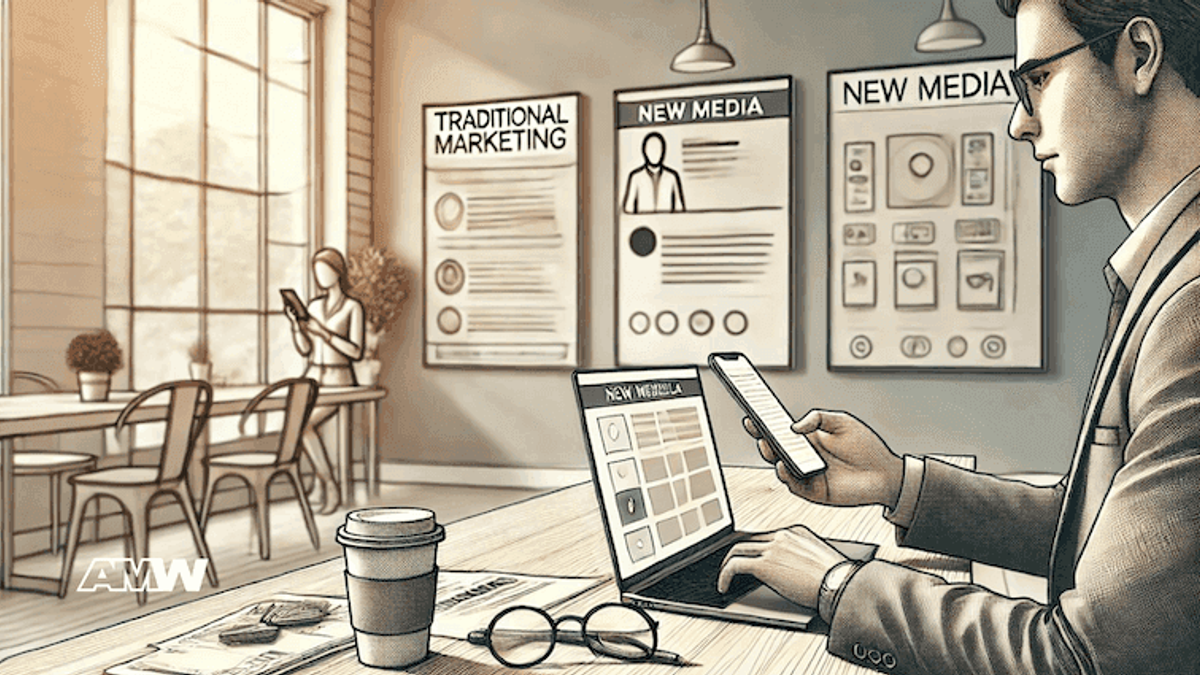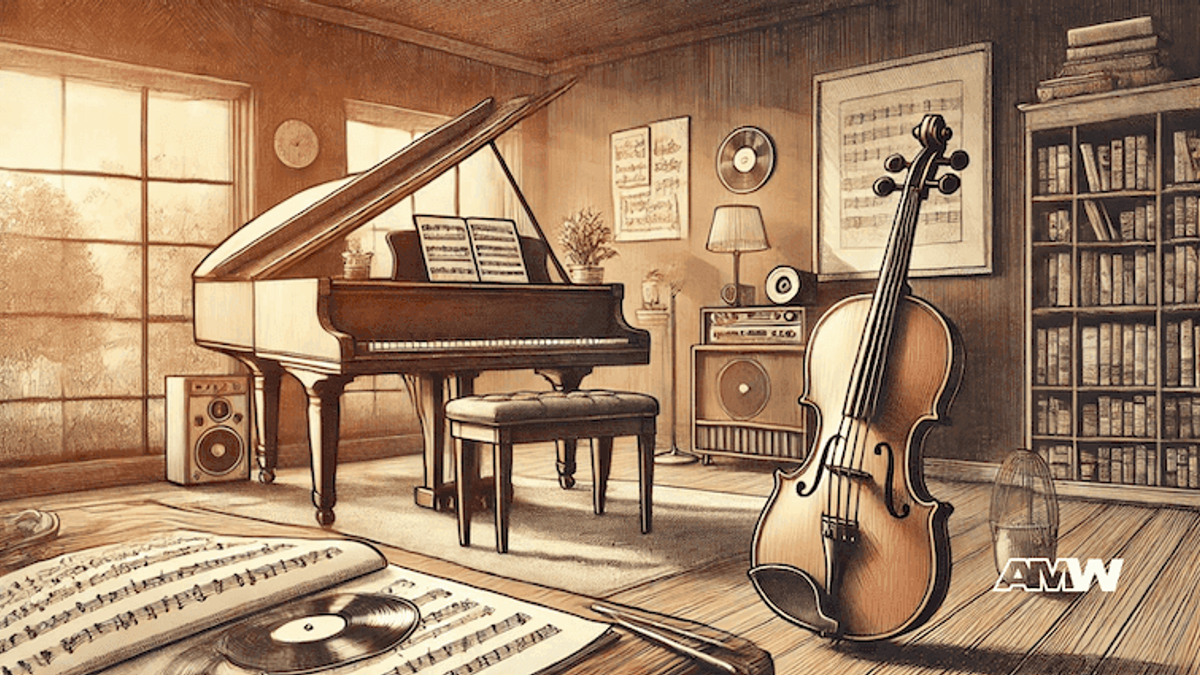How to Promote Classical Music

Classical music has been around for centuries, but promoting it in today's world can feel tricky.
Quick Summary
Promoting classical music today requires creativity and adaptability. Utilizing social media can enhance engagement, showcasing live performances and behind-the-scenes content to attract a wider audience. Collaborating with artists from different genres expands reach and employs various platforms like streaming services for greater visibility. Hosting local events boosts community involvement, while email marketing keeps audiences informed and engaged. Ultimately, blending traditional methods li
The good news is that you don't need to rely solely on traditional marketing methods to promote classical music. With the right tools and strategies, you can engage a broader audience and introduce them to the rich, emotional world of classical music.
Below are some practical tips to help you promote classical music and reach new audiences effectively.
Get Creative with Social Media Platforms
One of the best ways to promote classical music today is by using social media platforms. You can create engaging content around live performances, highlight interesting facts about composers or instruments, and give a behind-the-scenes look at what it's like to be a classical musician.
Start by creating social media posts that show your passion for the music. Post action photos or short videos from rehearsals, or share stories about your favorite recordings or performances. Make sure to tag other musicians or relevant organizations, and don't forget to use related keywords to boost visibility.
Platforms like Instagram, TikTok, and Facebook can help you reach a wider audience. You can use Instagram Stories to share updates about upcoming concert dates or events. TikTok is great for short, viral clips that can show how fun and dynamic classical music can be.
Social media enables direct connection with listeners and the creation of personalized content, providing more reasons for them to care about the music.
Collaborate with Other Musicians and Genres

Collaborating with other musicians or blending classical music with other genres is a great way to attract new fans. Imagine blending classical music with electronic beats or collaborating with a pop artist for a crossover performance. By merging styles, you can spark interest in people interested in modern music who may not have thought about classical before.
Collaborations not only help you reach a specific audience outside the classical music world, but they also open up opportunities for partnerships, shared press releases, and joint marketing efforts. Plus, when you work with other genres, you show the versatility of classical music, appealing to both traditional audiences and newer fans.
Bring Classical Music into Streaming and YouTube
While live concerts will always have a special place in classical music, digital spaces like music streaming platforms are becoming more important than ever. Upload your unreleased music to platforms like Apple Music, Spotify, or YouTube. Many people discover new music through these platforms, making it essential to have your recordings available there.
Building a YouTube channel is especially effective for engaging with a wider audience. You can upload clips of particular performances, behind-the-scenes footage, or even interviews discussing your latest works or the stories behind the music. YouTube's search algorithm and wide reach make it easy to discover new audiences looking for something fresh.
Music streaming and video platforms also allow you to see how your audience interacts with your content, giving you insights into what's resonating with them. This data can help you make informed decisions about what to promote and where to focus your marketing efforts.
Make Use of Press Releases and Direct Mail
Don't overlook the power of a good press release or direct mail campaign when trying to promote classical music.
Press releases are effective for promoting new concerts, collaborations, or music releases. A well-crafted press release can catch the eye of industry professionals and get your story featured in blogs, newsletters, or even traditional media like radio and newspapers.
Similarly, direct mail can still be useful in reaching a specific audience, especially for local concerts or events. While it may seem old-fashioned, sending out physical promotional materials or invites to past supporters or new audiences can still boost interest and ticket sales.
In your press releases and direct mail, be sure to highlight the unique qualities of your performances, like how they're different from past events or what makes a particular performance stand out. Including links to your website or social media profiles ensures that recipients have all the information they need to buy tickets and stay up to date on your future performances.
Engage with Local Communities and Use Event Listing Websites
Local engagement can do wonders when promoting classical music to a specific audience. You don't need a big budget or national reach to make an impact.
By hosting smaller performances in unconventional venues like parks, cafes, or libraries, you can bring the classical music world to people who might not typically attend a concert.
Posting your concert dates on local event listing websites is another easy way to boost your visibility and attract new audiences. Many people check these sites when looking for things to do, so having your events listed there could lead to more people discovering and attending your performances.
Incorporating these traditional methods with digital ones, like social media posts or online ads, gives you a holistic strategy for attracting both local audiences and a broader audience across many platforms.
Host Online Events and Make Classical Music Interactive

In the classical music world, it's important to make your performances feel personal. Hosting online events like Q&A sessions, live streams, or virtual performances can help you connect with your audience directly.
You can even host a live listening party for a new piece of unreleased music. This gives your audience a way to interact with you in real time and makes them feel part of something special.
Online events are also a great opportunity to answer questions, share interesting facts about the music, and encourage people to buy tickets to upcoming shows. These events can be shared across social media channels like Facebook, Instagram, or your YouTube channel to attract a wider audience.
With many people now used to attending virtual events, it's a smart way to keep audiences engaged, even when they can't attend live concerts in person. The more interactive your online presence, the more likely you'll attract new fans and grow your reach.
Make Use of Email Marketing and Newsletters
Email might seem outdated, but it's still one of the most effective tools to promote classical music. Sending regular newsletters to your subscribers can keep them informed about upcoming concerts, new releases, or interesting facts about your latest performances. You can share stories, videos, or personal notes about your journey as a musician, which helps you stay connected to your audience.
Through email marketing, you can also send targeted promotions, encourage people to buy tickets, and announce exclusive content like unreleased music or behind-the-scenes videos. Offering these perks to your email list gives them a reason to stay subscribed and keeps them coming back for more.
Ensure to include calls to action, such as inviting them to follow you on social media or sharing your email with friends who may also be interested.
When you combine email marketing with other tactics like social media posts and event listing websites, you create a comprehensive strategy that reaches your target audience through multiple touchpoints.
Collaborate with Streaming Platforms to Reach a Wider Audience
Collaborating with music streaming services like Apple Music or Spotify can help you reach a much larger pool of listeners.
Classical musicians should take advantage of these platforms to create curated playlists, offer exclusive recordings, or release new music. This increases your chances of being discovered by people who are already using these platforms to search for music.
Releasing your music on many platforms also ensures that you're reaching different kinds of audiences. For example, Apple Music might attract one specific audience, while Spotify could bring in another. Use the platform's data to see where your audience is growing and what pieces they are most drawn to, then focus your future marketing efforts there.
Remember to keep your profile on these platforms up to date. Use high-quality images and add links to your website or social media so that fans can easily follow you. The more visible and accessible you are, the more likely it is that people will start paying attention to your music.
Mix Traditional Marketing with New Media Tactics

While digital strategies are essential, don't completely abandon traditional marketing methods. Combining both can help you maximize your reach. Print advertising in local newspapers or specialized music magazines, for example, can still bring attention to your performances, especially for audiences who prefer traditional methods.
Use press releases to share your latest concert dates, special projects, or collaborations. You can distribute these to industry professionals, local papers, and online music blogs. While press releases might seem old-fashioned, they can still generate media attention and increase awareness about your work.
Similarly, don't forget about the value of direct mail. Sending physical promotional materials to loyal fans or past attendees can still be a powerful way to get the word out about new performances or events. A well-timed postcard or flyer can create excitement and even help boost ticket sales for upcoming concerts.
Stay Connected with Your Audience Through Engagement and Feedback
Finally, building a lasting connection with your audience is key to keeping them interested in your work.
After each concert or performance, send a follow-up email or message on social media to express gratitude for attending and request feedback. This helps create a sense of community and shows that you care about your audience's experience.
Take time to respond to comments, share stories from the concert, and even highlight fan content, such as photos or videos they've posted. Engaging with your audience after a performance keeps the momentum going and helps turn one-time attendees into lifelong fans.
Conclusion

Promoting classical music may feel daunting in today's fast-paced music industry, but with a combination of traditional methods and modern techniques, you can reach a broader audience and grow your fanbase.
To get your music out to the right crowd, make sure you're keeping up with social media, teaming up with other musicians, and using email marketing and streaming services. Whether it's through press releases, interactive online events, or good old-fashioned concerts, the key is to stay flexible and open to current trends in promotion.
Classical music has so much to offer, and by staying connected, creative, and engaged, you can help more people discover its timeless beauty.
FAQs About Promoting Classical Music
Why should I promote classical music?
Classical music has a timeless beauty and depth that deserves to be heard by new generations. Promoting it helps preserve cultural history and brings its emotional power to wider audiences.
Can classical music appeal to younger listeners?
Absolutely! Many young people enjoy classical music when it's presented in fresh, engaging ways—whether through social media, modern remixes, or storytelling.
How do I get more people interested in classical music?
Make it accessible! Share bite-sized pieces online, tell the stories behind the music, and connect them to emotions and themes that people care about today.
Is social media really effective for the promotion of classical music?
Yes! Social media is a fantastic way to reach people who might not encounter classical music in traditional settings like concert halls or radio.
What are some good platforms for streaming classical music?
Spotify, Apple Music, and YouTube are great places to create curated playlists.
How can local festivals help promote classical music?
Festivals provide a unique opportunity for people to experience classical music in a lively, community-based setting, which can attract new audiences and create memorable connections.
Frequently Asked Questions
How can classical musicians use social media to promote their music effectively?
Classical musicians can leverage social media by posting behind-the-scenes content from rehearsals, sharing interesting composer facts, and creating short video clips of performances. Instagram Stories work well for concert announcements, while TikTok excels for viral, dynamic classical music clips. Tag other musicians and organizations, use relevant hashtags, and show your passion through action photos and personal stories to connect directly with audiences and boost visibility.
What are the best streaming platforms for promoting classical music?
The most effective streaming platforms for classical music promotion include Spotify, Apple Music, and YouTube. Upload unreleased recordings, create curated playlists, and build a dedicated YouTube channel with performance clips, interviews, and behind-the-scenes footage. These platforms provide valuable audience interaction data and have powerful search algorithms that help new listeners discover your music, making them essential for reaching broader audiences.
How do collaborations with other genres help promote classical music?
Genre collaborations attract new fans by blending classical music with electronic beats, pop, or other modern styles. These crossover performances appeal to audiences who might not traditionally listen to classical music while showcasing its versatility. Collaborations also create opportunities for shared marketing efforts, joint press releases, and partnerships that expand your reach beyond the classical music community to include diverse musical audiences.
What local strategies work best for promoting classical music concerts?
Host performances in unconventional venues like parks, cafes, or libraries to reach people who don't typically attend concerts. List events on local event websites where community members search for activities. Combine these grassroots efforts with digital promotion through social media and online ads for maximum impact. Direct mail to past supporters and local music enthusiasts can also boost ticket sales for community-based performances.
How can online events help classical musicians build their audience?
Online events like live streams, Q&A sessions, and virtual listening parties create personal connections with audiences. Host live performances, answer questions about your music, and share behind-the-scenes insights to make fans feel part of something special. These interactive experiences can be promoted across Facebook, Instagram, and YouTube, helping you maintain engagement when live concerts aren't possible while attracting new listeners globally.
Why is email marketing still important for classical music promotion?
Email marketing remains highly effective because it allows direct communication with dedicated fans through regular newsletters. Share upcoming concert announcements, new releases, exclusive content, and personal stories about your musical journey. Offer subscribers special perks like unreleased music or behind-the-scenes videos to maintain engagement. Include clear calls-to-action for ticket purchases and social media follows to create a comprehensive promotional strategy.
How should classical musicians write effective press releases for music promotion?
Write press releases that highlight unique performance qualities, new collaborations, or special concert features that distinguish your events. Focus on what makes each performance stand out and include compelling stories behind the music. Target industry professionals, blogs, newsletters, and traditional media outlets. Always include links to your website and social media profiles, and emphasize newsworthy angles that media outlets will find interesting to their audiences.
Related Resources
Calculators
Pricing Guides
Key Terms
The deliberate sequencing of release platforms (theatrical, streaming, VOD) to maximize revenue across all distribution channels.
Creative ProducerA producer focused on story, talent, and creative elements rather than primarily on financing and business aspects.
Stem DistributionReleasing individual component tracks of a song separately, enabling remixing, sync licensing, and fan creativity.
Music Sync AgentRepresentative who secures placement of music in film, TV, advertising, and games.
Social AudioShort-form music content created for social media platforms.
Related Articles

From Indie to Mainstream: Effective Music Promotion Strategies
Discover effective strategies to help indie artists stand out and master music promotion to transition from indie to mainstream success in a crowded market.

How to Promote Your Band: 10 Strategies for Success
Discover successful strategies to promote your band, including developing an engaging website and utilizing livestreams and podcasts effectively.

How to Build Social Media Presence for Your Music Brand
So you want to start working out your social media? Get it in shape! Well, you’ve come to the right place. We tell you all about how to build social media presence for your music branding and keep it
